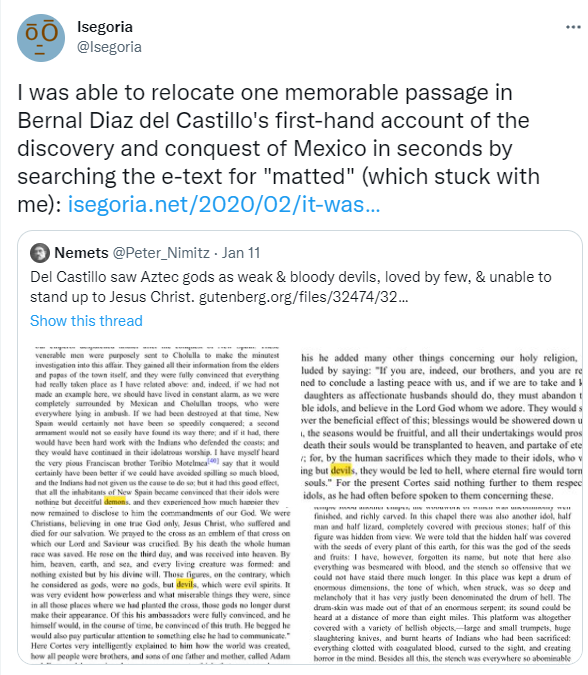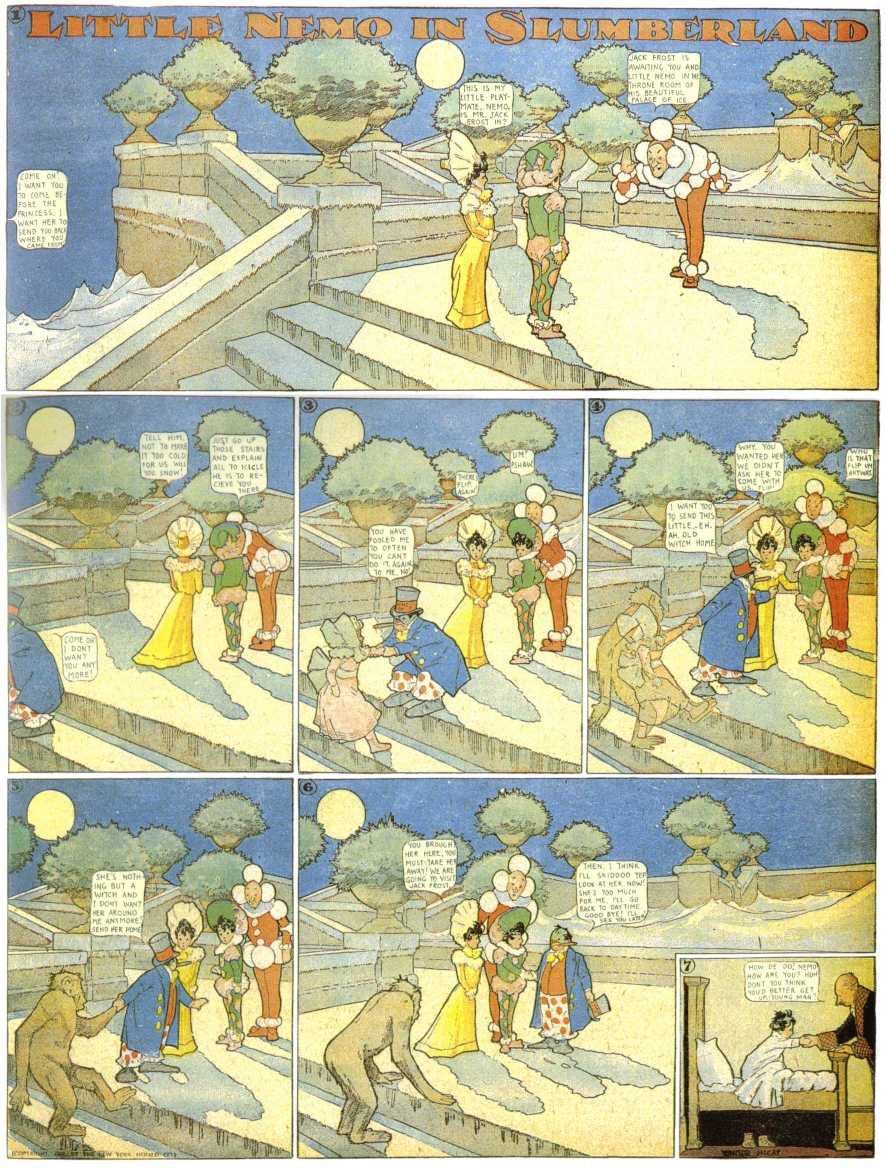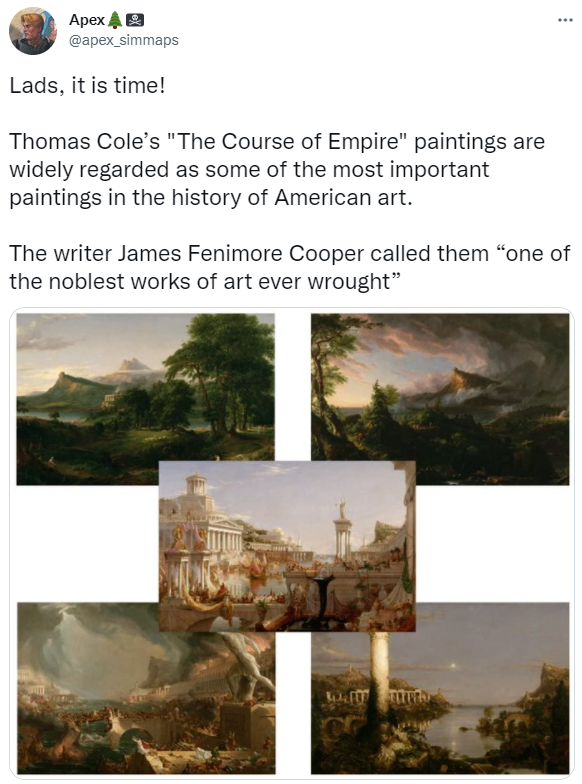Linkfest 2022-01-21: Dudes Rock

I love Dudes Posting their W’s on Twitter, and this is a fine example of why
It is absolutely fascinating how language can be reconstructed without any recordings. For this particular example, there are some extant recordings, but it isn’t necessary. It does require patient detective work, and some guesswork.
Post-Liberal Order: Who Decides?
Adrian Vermuele lays out a case for the just exercise of power, rather than reflexively shunning it.

Isegoria: I was able to find a memorable passage by searching for matted
Internet friend Isegoria points out a few memorable passages in Bernal Diaz del Castillo’s first-hand account of the discovery and conquest of Mexico, and follows up with accounts of the conquest of the Incas.


Antigone Journal: Lorem ipsum filler fail
Antigone journal lays out where the famous filler faux-Latin text came from.

Little Nemo in Slumberland by Winsor McCay from 115 years ago, or January 20, 1907.
Full Stack Economics: 18 Charts that Explain the American Economy
There are some really cool charts in here, but I have to question the wisdom of any blog that pooh-poohs the housing bubble and utterly fails to grapple with the primary cause of it: debauching credit standards so that too many borrowers who wouldn't ever be able to repay got loans.

Twitter user Apex_simmaps explains the images that comprise my blog header in terms of Ibn Khaldun, Oswald Spengler, and Pitirim Sorokin.
With Both Hands: This Strange Engine Book Review
Since Steampunk was much discussed on Twitter yesterday, here is a steampunk book that I liked reasonably well, and that had properly fae elves in it too. JRR Tolkien wrote his elves as one step closer to grace to humans, and the outsized success of the Lord of the Rings meant that displaced the older idea of elves as fae, other, treacherous and untrustworthy creatures that stole children and imprisoned the unwary.
Some of John J. Reilly's central ideas about the Papacy are contained herein. The 18th and 19th centuries were a time of rampant nationalism in Europe, and the Pope was the head of the last institution that could effectively resist the nation-state. As the latter half of the nineteenth century built to a revolutionary crescendo that would reach its culmination in the Great War, Pius IX and Leo XIII filled this unlooked for role in their own characteristic ways.
Comments ()